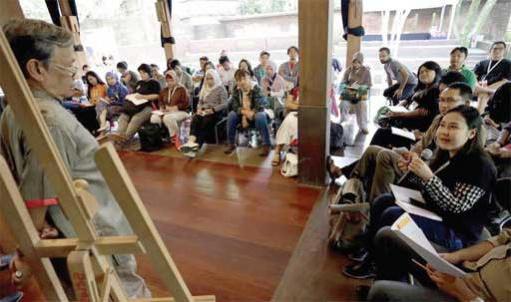The Law of the Russian Federation "On Non-Profit Organizations" formulates the order of formation and functioning, determines the legal status, the rules for the liquidation and reorganization of these enterprises as legal entities. The regulatory act establishes the features of the creation and use of property, obligations and rights of participants. The RF Law "On Non-Profit Organizations" defines the fundamentals of company management, forms of assistance to them by the authorities. In accordance with this document, amendments / additions to other regulatory acts are made. Changes to the Law "On Non-Profit Organizations" are allowed in the prescribed manner. 
General information
The Law of the Russian Federation "On Non-Profit Organizations" applies to all of these companies created or formed in the country. The regulatory act defines the procedure for the formation and functioning of structural units of foreign legal entities. The provisions of the document do not apply to consumer cooperatives, gardening, horticultural, summer associations, partnerships of owners of residential properties. Articles 28-30, 21-23, 13-19 of the normative act do not cover the scope of functioning of religious societies, bodies, state power institutions, local self-government, unless otherwise provided by the Law. Federal Law "On Non-Profit Organizations" formulates the basic concepts and explains them in Art. 2. Since the adoption of the regulatory act, adjustments have already been made to it. In particular, amendments to the Law "On Non-Profit Organizations" touched on Art. 22. On 1 July 2002 she was expelled.
Characteristics of enterprises
A non-profit organization is considered an organization whose main purpose is not profit-making in the process of its work. Such a legal entity does not distribute the income received among its participants. Such companies can carry out only certain activities. The Law "On Non-Profit Organizations" establishes that they can be formed to achieve goals in the areas of:
- Culture.
- Science.
- Management.
- Education.
- Charity.
- Physical education and sports.
- Health care.
- Spiritual and other intangible needs of the population.
- Protection of freedoms and interests of legal entities and citizens.
- Settlement of disputes and conflicts.
- Providing legal assistance.
The Law "On socially oriented non-profit organizations" establishes the forms in which such institutions can be created:
- Religious / public associations.
- Communities of small indigenous peoples.
- Partnerships.
- Institutions.
- Autonomous associations.
- Charity, social and other funds.
- Unions and associations and others.

Legal status
Mandatory requirement for the start of the association is registration. The Law "On Non-Profit Organizations" sets forth the conditions under which an association must have operational management / property separate property. All enterprises, except private institutions, respond with their material values to their obligations. An association may acquire and exercise on its own behalf non-property and property rights, be a defendant / plaintiff in court, and fulfill duties. The Law (Federal Law) "On Non-Profit Organizations" requires enterprises to have an independent estimate or balance sheet. The association may open accounts both domestically and abroad in the prescribed manner. The legal entity must have a seal with the full name in Russian.The regulatory act does not establish a time period for registration. The Law "On Non-Profit Organizations" determines that an association is formed without restrictions on the time of functioning. Other may be established in the constituent documents.
Representative offices and branches
They can be opened in the country in accordance with applicable law. A branch is a separate division, which is located outside the location of the association. It may partially or fully carry out its core business. The Law "On Non-Profit Organizations" as a representative office calls a separate unit located outside the location of the association and representing its interests. It can also protect the enterprise. Representative offices and branches do not act as legal entities. They are endowed with the property of the organization that formed them, and act in accordance with the regulations approved by it.
Religious / Public Associations
They are organizations voluntarily created by citizens. Subjects are united on the basis of a community of interests in order to satisfy spiritual or other intangible needs. Such organizations are entitled to conduct entrepreneurial activities that are appropriate for their purpose. Members of the association do not retain the rights to property transferred to him, do not answer for his obligations, as well as vice versa.
Community
Associations of small indigenous peoples are considered forms of self-organization of the relevant persons, uniting according to territorial-neighborly or blood-related principles. Such communities are formed to ensure the protection of their environment, the preservation and subsequent development of traditional crafts, culture, management and lifestyle. The Law "On Non-Profit Organizations" allows for the implementation of entrepreneurship for the purposes for which these associations were created. Community members are given the right to receive part of the property or compensation for its value upon voluntary termination of membership or liquidation. Similar provisions are contained in the Law "On Non-Profit Organizations of the Republic of Kazakhstan" and other republics that are part of the country. 
Funds
They are non-profit organizations that do not require membership. They are created by legal entities or citizens on the basis of voluntary contributions. Funds are formed for charitable, educational, cultural or other socially useful purposes. The property transferred by the founders becomes the property of the organization. It is used in accordance with the objectives defined in the Charter of the association. The Fund may engage in entrepreneurship in the performance of the tasks assigned to it. constituent documents. In the course of such activities, a nonprofit organization may form or participate in business entities. Property Use Reports are published annually.
State corporations
The work of these institutions is regulated by the considered normative act. An organization established by the Russian Federation on the basis of a property contribution is recognized as such an organization. State corporations are created to implement managerial or other socially useful tasks. To form such an association, the corresponding Law "On State Non-Profit Organizations" is issued. The property transferred by the founder is considered the property of the corporation. The association is not liable for the obligations of the Russian Federation, as well as vice versa. The regulatory act, on the basis of which the corporation will be formed, should determine:
- Name.
- Goals.
- Location.
- Management Order.
- Rules for the appointment and dismissal of officials.
- Liquidation / reorganization procedure.
- Rules for the use of property upon termination of work.
Similar requirements are imposed on the creation of state corporations by the Law "On Non-Profit Organizations of the Republic of Kazakhstan". 
Partnership
It is an association established by legal entities or citizens, which concludes a support agreement with its members. The Law "On Non-Profit Organizations" establishes that the property transferred to such an association is its property. Partnership is not responsible for member obligations. An association may conduct entrepreneurial activity that meets the goals for the implementation of which it is formed. An exception is when a partnership has acquired the status of a self-regulatory institution.
Private Institutions
Their formation is also provided for by the Law on Non-Profit Organizations. A private institution is an institution created by the owner (legal entity / citizen) for the implementation of socio-cultural, managerial or other useful functions. The property of the organization is assigned to it as an operational manager in accordance with the Civil Code.
Autonomous Association
The Law "On Non-Profit Organizations" allows the establishment of institutions by legal entities / citizens on the basis of voluntary contributions for the provision of services in the field of healthcare, education, law, science, culture, sports, etc. The property that is transferred to the association is its property. The founders do not retain rights to objects given to the organization. At the same time, participants oversee the work of the institution in the prescribed manner. An autonomous association may engage in entrepreneurship consistent with the purposes for which it was formed.
Unions and Associations
They are created to coordinate entrepreneurial activity, to protect and represent the interests of commercial organizations. Participants in unions and associations retain their rights and independence of the legal entity. If the founders made a decision to entrust the enterprise with conducting business activities, it will be transformed into a business partnership or company in the manner prescribed by the Civil Code. 
Registration
A non-profit organization must go through the state registration procedure. The corresponding decision is made by the executive authorized body. Entering information into the Unified State Register of Legal Entities on the formation, liquidation, or reorganization of an association, as well as other information provided for in regulatory enactments, is carried out under Art. 2 Federal Law "On State Registration of Individual Entrepreneurs and Legal Entities". Forms of the necessary documents that the association must provide for registration are determined by the Government. Collected papers are sent to the authorized body no later than three months. from the date of the decision to form the institution.
Documents
The Law "On Non-Profit Organizations" establishes the following list of securities:
- A statement signed by an authorized person. It must contain the full name, contact numbers, address of residence.
- Constituent documents (in 3 copies).
- Decision on the formation of the association and approval of relevant documentation indicating the composition of the appointed / elected bodies (2 copies).
- Information about the founders (2 copies).
- A receipt confirming the payment of the fee.
- Information about the address (location) of the constantly functioning body of the association, at which you can contact him.
In the event that the name contains the personal name of an individual, symbols protected by copyright laws or the protection of the results of intellectual activity, or the full name of a legal entity, documents are provided that confirm the respective right to use. If the founder is an alien, an extract from the register of the respective country is presented. Instead, another document of equal strength can be provided, which confirms the legal status of the participant. 
Entering information in the register
In the absence of grounds for refusal of registration, the authorized body, within 14 days after receipt of the documentation, takes the appropriate decision and sends the application and submitted papers to the appropriate authority. Entry into the USRLE is carried out no later than five business days after receipt of the materials. Not later than the next day, this fact shall be reported to the body that made a positive decision on registration. Within three days from this moment, the applicant can receive a certificate.
Constituent documents
The Law "On Non-Profit Organizations" requires associations to develop and approve a charter. It is intended for a public association, private institution, foundation, partnership, autonomous organization. Unions and associations must, in addition to the charter, conclude a memorandum of association with members. In cases provided for by law, an organization may act in accordance with the general regulation on institutions of this type. The constituent documentation shall determine:
- The name of the association, which should contain an indication of the specifics of its work and the legal form.
- The procedure and conditions for admission to membership and withdrawal from the association.
- Information about representative offices and branches.
- Subject and purpose of work.
- Management Order.
- Location.
- Sources of property formation.
- The procedure for making additions, adjustments to the constituent documentation.
- Rules for the use of property in case of liquidation.
The constituent documents may contain other information not prohibited by law. 
Association property
The operational management or ownership of a non-profit organization may include:
- Housing fund.
- Inventory.
- Buildings / buildings.
- Equipment.
- Cash in foreign currency and rubles.
- Securities.
- Land and other property.
In case of non-performance by the association of their obligations, a penalty may be imposed on these objects.
Conclusion
Non-profit organizations must within three days notify the authorized body of a change in the data specified in paragraph 1, Article 5 of the Law governing the registration of legal entities and individual entrepreneurs. An exception is information regarding obtaining licenses. Associations are required to provide relevant documents on the amendments made to make a decision on redirecting them to authorized bodies. The list of such papers is established by the government.








